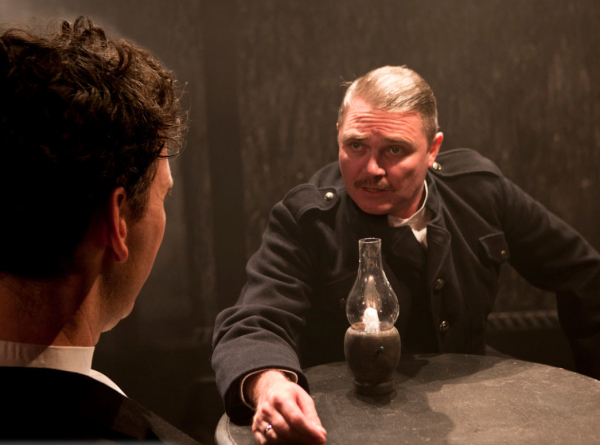The Father (Trafalgar Studios)
Strindberg’s 1887 tale of marital misery is revived in a slick production

© Simon Annand
If you're looking for a positive picture of relationships, don't turn to Strindberg. From the pen of the dramatist behind Dance of Death and Miss Julie comes this early work, The Father, centring on a battle of wills between a retired army Captain and his wife over the future of their daughter.
It's deeply ugly, from the word go. The Captain, presciently named Adolph, wants his teenaged daughter Bertha to move into town and study teaching, whereas his younger wife Laura wants her to stay closer to home.
This being patriarchal 19th century Sweden, the Captain assumes his will is final, but he hasn't counted on the Machiavellian maneuverings of his wife, who cunningly plants a seed of doubt over his status as Bertha's father. This, she calculates correctly, is enough to tip an already simmering personality to boiling point.
The play, running here at 100 minutes straight through, hurtles through the gears and, like much of Strindberg, puts an unflinching microscope (or should that be spectroscope?) on turn of the century gender politics. It successfully reveals the strain of misogyny underlying the Captain's neuroses – and those of wider society – while creating a richly complex female protagonist in Laura.
Laurie Slade's version speaks clearly to a contemporary audience, and Abbey Wright ensures the action rarely loses tension. As the Captain, Alex Ferns gives a belting – in all senses – performance, though Emily Dobbs more than holds her own as Laura. There's solid support too from Barnaby Sax's level-headed local doctor and June Watson's fretting, maternal nurse.
It's not the most balanced of productions, with the Captain often threatening to blast the other characters off stage in one guttural roar after another. But the fault for this perhaps lies with Strindberg, who in creating this unholy duo pitted a brass band against a violin.
The Father continues at Trafalgar Studios 2 until 11 April 2015












